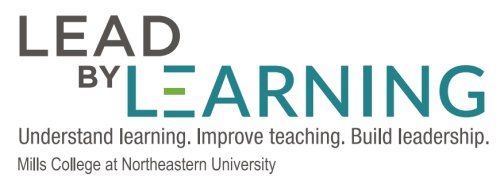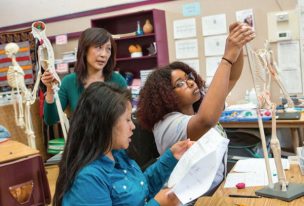Teacher Collaboration That Leads to Instructional Innovation
In our Teacher Scholars Voices blog this month Kirsti and Juliet ask: “What does it look like to take an asset-based approach to teaching African American boys reading while holding them accountable to specific learning goals?” and “What do we mean by ‘participation’—how can all students participate in class in an authentic and meaningful way?”
These complex and crucial questions are at the heart of good teaching, yet teachers tell us they rarely have the opportunity to engage with their colleagues to ask and to pursue essential questions like these that propel their teaching forward.
So what is getting in the way of creating these powerful collaborative learning spaces for teachers? Certainly time ranks as one of the largest challenges, with US teachers spending more time with students and less time collaborating than almost any other nation in the world. However, in schools that have devoted the time to collaboration in professional learning communities, there are still obstacles to creating meaningful adult learning opportunities that transform classroom teaching and school culture.
The research literature on teacher collaboration names several patterns in teacher collaboration that can get in the way of powerful adult learning including:
- Teachers are polite and often struggle to challenge each other’s thinking
- In general, teachers draw on hunches and do not use meaningful evidence/data to respond to students’ needs and to drive instructional change
- There is a documented “turning away” when the data does not look the way teachers hoped
These types of challenges—building a continuous improvement culture and using data for improvement— are not exclusive to the teaching profession. But how do the assumptions held by educational systems and institutions (by education policy, district mandates, school leadership, etc.) about the work of teaching actually encourage these less than desirable patterns that impede powerful adult collaboration?
For one thing, district goals around teacher learning tend to focus exclusively on implementation of curriculum or “best strategies” and rarely address any need for adult meaning making or context specific learning. Not only does this promote a myth of certainty about the work of teaching, but it also names teaching as technical work: do x and y will happen. If we acknowledge that this is the climate that teachers are working in, when we revisit the patterns of behavior that are getting in the way of productive collaboration, they seem like a reasonable response to the assumption that the work is certain. If the institutional message is that teaching is simply a matter of strategy implementation, it is no wonder that teacher collaboration often does not fulfill the promise of innovative thinking and dynamic instructional change.
At Mills Teacher Scholars we have strategies for addressing the obstacles to powerful collaboration, but perhaps more importantly, the way we conduct our work challenges the assumptions that teaching is purely technical work.
In the case of Juliet, an Albany High teacher scholar, her learning journey began with her question: “How can I come up with a system to grade my students’ participation and discussion?” Juliet engaged in the Mills Teacher Scholars process of collaborative inquiry within a professional culture that acknowledges the uncertainty inherent in teaching. She collected and analyzed student participation data and spoke with her students about their perceptions about participation. Eventually her question evolved to “What strategies can I use to encourage a more diverse and equitable participation from an array of voices in the classroom?”
Juliet’s shift from emphasizing grading student participation to actually partnering with students to explore what participation meant in her classroom is an example of inquiry that pushes beyond strategy implementation to ask larger questions about learning and purpose. We believe that if we want classrooms where students are grappling with meaningful questions, teachers must have access to these experiences as well.


